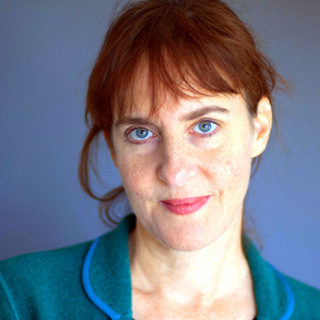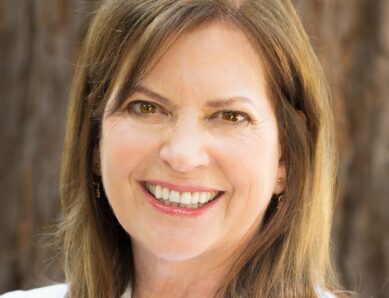Old age… Imagine an 80-year-old man. Is he sitting in an assisted-living facility, dozing off in front of the TV, legs covered with a blanket? Is he playing soccer with his grandchildren? Or is he chairing a board meeting at a Fortune 500 company?
It’s remarkable that, these days, each of these visions is as likely as the others, because people are living for longer and in very different ways. Some of us decline over decades. Others stay fit until the end.
Personal financial insecurity may dictate that people remain in (or return to) the workplace later in life, or it could be a creative passion that keeps them involved. Either way, they’re consumers too, equating to a potential $22 trillion market worldwide.
The nuances – and opportunities – of this diverse picture aren’t lost on Susan Wilner Golden, a former venture capitalist who now leads a program on the business implications of longevity at Stanford Business School.
She recently brought some of her ideas together in a new book, “Stage (Not Age).” In this clip from my Expert Interview podcast with Susan, she explains what’s behind that title.
Breaking Age Stereotypes
Shakespeare wrote of “the seven ages of man.” Wilner Golden believes it’s more like 18 stages.
Some of them, like caregiving and formal education, may come around a few times in one life. And everyone will experience their stages differently.
“The key is to stop thinking of all older adults as just one type of person,” she says. “It’s much more important to think about what stage of life they’re in. Are they in their repurposed stage, a new renaissance stage?”
Yet the idea that all older people are alike remains stubbornly prevalent in the business world.
“You can look at a lot of advertising and marketing toward older adults. It often portrays people as one type of person, which is frail. Somebody’s holding their hand. And that maybe is needed, but that’s not true for everybody,” she points out.
Opportunities of Age
The “old person” stereotypes may be outdated, but older people still have specific needs, as they move from one stage to another. This is where the business opportunities lie.

Take communication as an example. My aunt Kate has struggled to use smartphones since she first got one. That isn’t unusual among her peers. They came to the digital world later in life than others.
The irony is that the model Aunt Kate struggled with the most claimed to be designed for older people. That’s why she picked it.
I remember trying to help her perform simple functions such as text and search, but I failed. The icons were large, so they were easy to see, but they weren’t standard or intuitive. And when I touched them, they didn’t take me where I was expecting.
The designers had set out with a good business idea aimed at serving this large, growing, and often wealthy segment of the population. But they’d ended up with a device that did the opposite of what it promised. It increased stress and a sense of inadequacy among its target users.
Wilner Golden has a simple tip for companies looking to serve older people in the right way: create intergenerational teams.
As well as increasing the likelihood of producing something truly useful, it may give new purpose to the older employees involved, who might otherwise feel like they’re counting down to retirement.
Don’t Assume – Include!
If an older person had helped design Aunt Kate’s phone, perhaps the icons would have been familiar, just a little larger or brighter than usual. Wilner Golden calls such tweaks “stealth features.” And the navigation pathways would have matched those of mainstream models. Not everything has to change.
“Having someone to design with, rather than for, is the mantra in the field,” Wilner Golden says, “because you may not know what the needs and wants of an older adult are, but your older employees may well.”
This applies equally to younger employees. Your millennial and Gen Z team members can bring valuable insight into product design for their peer groups, too. It’s all about working well together, regardless of age.
Indeed, for Wilner Golden, “engaging intergenerational opportunities” is the “secret sauce” for companies and individuals looking to win in our changing world.
“We cannot be an age-segregated society,” she believes. “To integrate more would be wonderfully powerful going forward.”
A Strategy for Older Age Inclusion
Mind Tools Club members and Mind Tools for Business licensees can listen to or read my full 30-minute interview with Susan Wilner Golden, in which she discusses her work with students aged 50-80, the imperative to build digital literacy across generations, and which companies are leading the way in inclusion for older employees and customers alike.
If you’re not already signed up, join the Mind Tools Club now to gain access to 2,400+ resources, including our back catalog of 200+ Expert Interviews. And to find out more about Mind Tools’ enterprise solutions, you can book a demo.
When Will You Retire?
Do you love your work too much to leave, or has financial insecurity forced you to return? What product would you like to see redesigned so that you could use it into later life? Share your experiences in the Comments, below!



